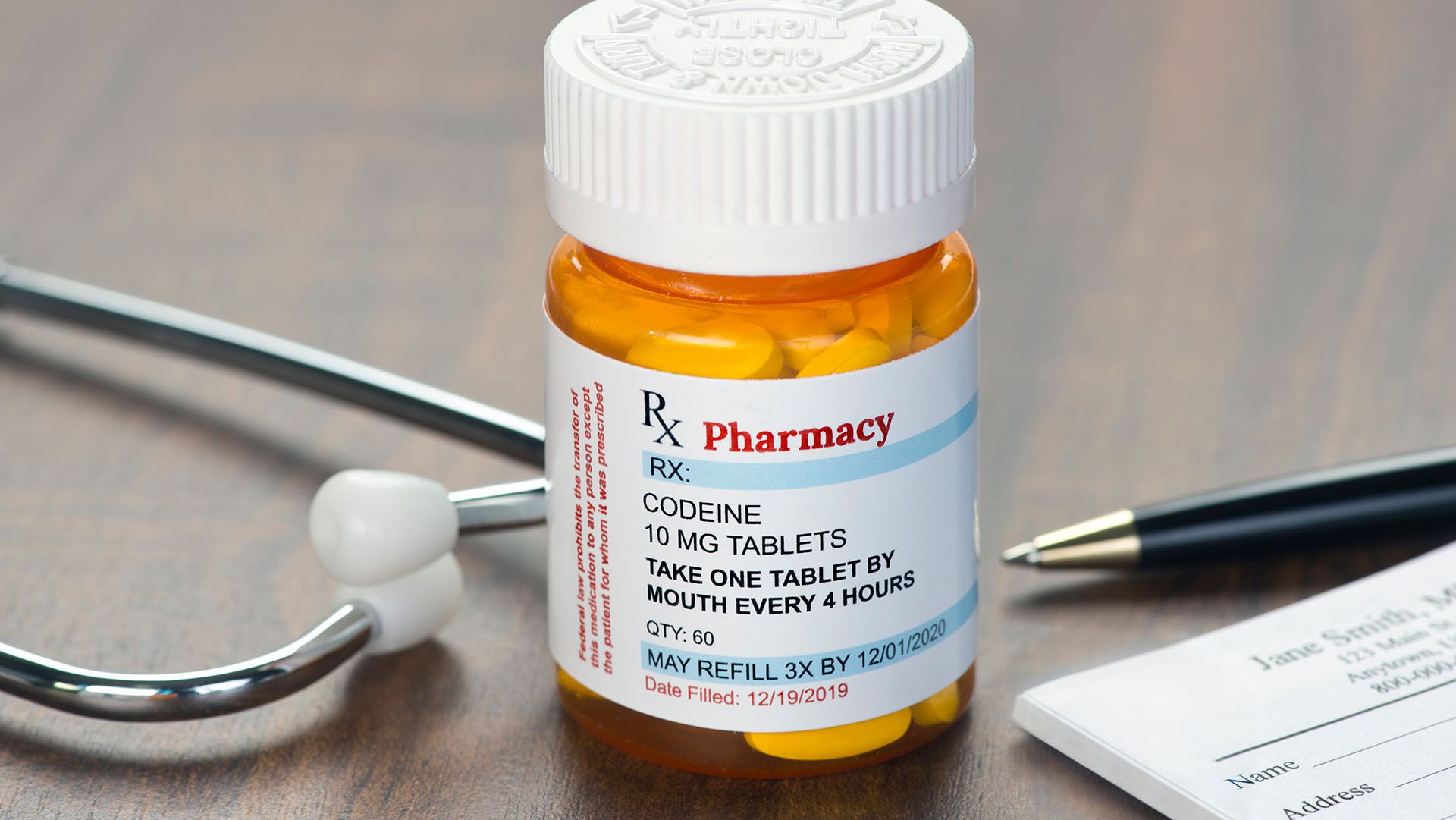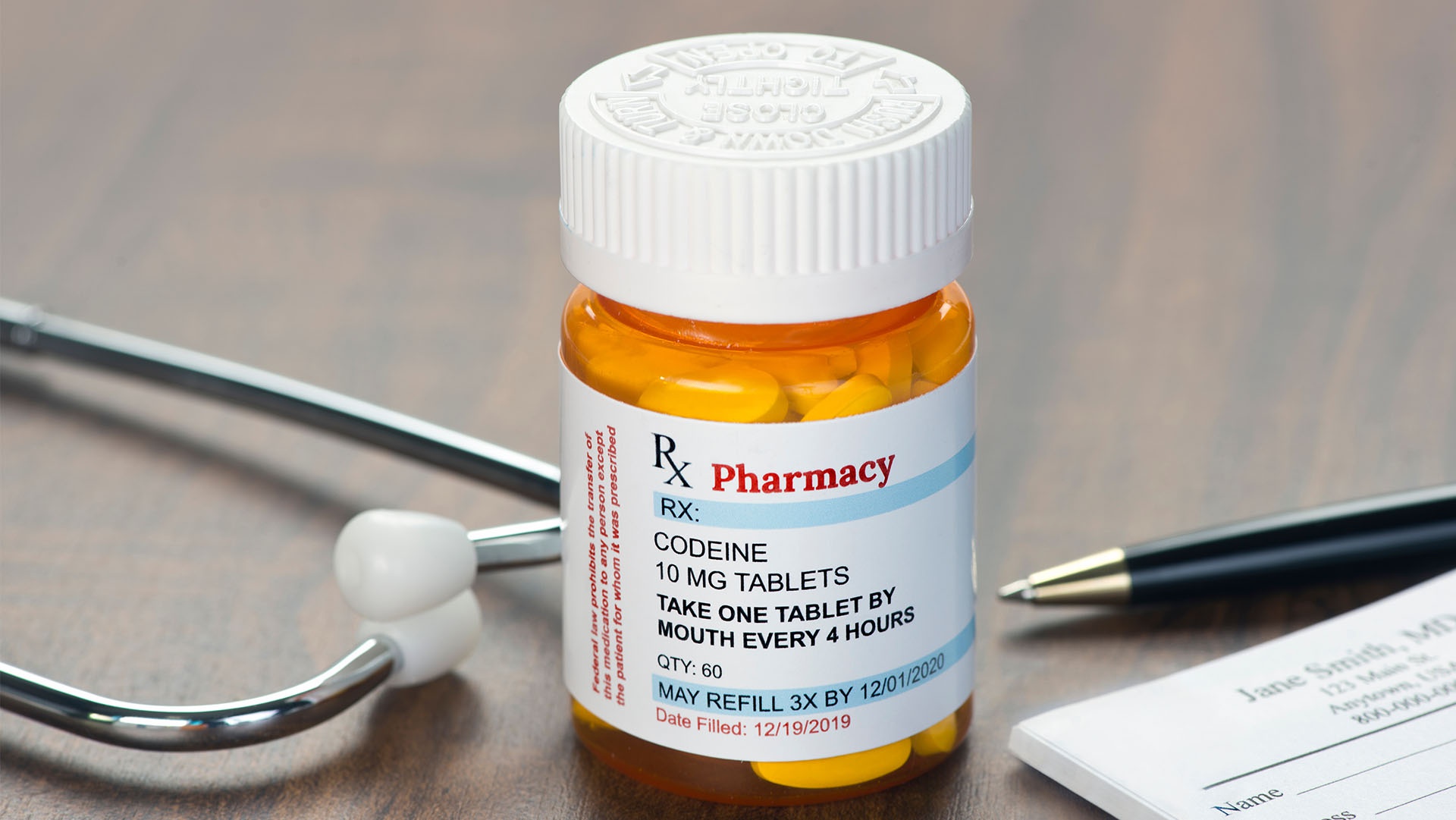Codeine Addiction Treatment
A little cold shouldn’t give rise to a life-altering addiction, but that’s precisely what can happen if you become addicted to codeine. Codeine is a powerful opioid drug that is every bit as addictive as heroin, not to mention chemically similar to that most feared of street drugs. Yet many codeine abusers think that, because codeine is available in common cough and cold remedies, it’s safer than street drugs. Nothing could be more untrue. Codeine addiction can claim your life, and if you’re dependent on this dangerous drug, the time to seek codeine addiction treatment is now.
Understanding Codeine
Codeine is present in a wide variety of cough and cold remedies, some of which are available over-the-counter. Rising concerns about the specter of codeine addiction, though, means that most codeine users now get the drug from a physician. Codeine is a synthetic opioid, which means that it’s chemically similar to heroin, with similar effects, and a similar capacity to induce addictive behavior.
In most cases, codeine is not available on its own, but rather as a second drug in a drug cocktail such as hydrocodone. Because codeine often is mixed with other drugs, the risk of overdose is especially high. Hydrocodone paracetamol, for instance, contains acetaminophen. At high doses, acetaminophen is toxic to the liver, killing users much more rapidly than codeine alone. Consequently, addictive use of codeine can actually cause users to inadvertently overdose on a second drug.
Codeine addiction doesn’t just harm the addict. It provokes a host of problematic behaviors that can destroy an entire family, and even land the addict in jail. Legal and financial problems are common, and some codeine addicts even end up divorced or lose their jobs.
Worse still, codeine contributes to an increasingly unstable political climate. Opium is the primary crop grown by the Taliban, Al Qaeda, and other terrorist organizations. If you obtain your codeine illegally from a drug dealer, you may be directly contributing to terrorist activities and international human rights violations. And, of course, the illegal drug trade also contributes to crimes of violence closer to home, by funding gang activities and destabilizing communities.
Signs of Codeine Addiction
Codeine addiction is characterized by two separate phenomena. Chemical tolerance occurs when users have to take larger doses than they once did to get a similar effect. It’s the first stage of addiction, and is what typically spurs users to continually use codeine. With prolonged use, chemical dependency is just around the corner. Once you become dependent on codeine, your body behaves as if it needs the drug to survive, and is willing to do just about anything to encourage you to continue using. The best drug rehab programs for codeine treat both the chemical dependency and the psychological effects of addiction to such a powerful drug.
Some of the signs of codeine addiction include:
- Faking medical symptoms to get access to codeine
- Engaging in “doctor-shopping” to get larger quantities of codeine than you could otherwise legally get
- Stealing a loved one’s prescriptions or drugs
- Lying to your doctor or to loved ones about your use of codeine
- Difficulty concentrating or being yourself without codeine
- Neglecting people and activities you once loved because of codeine
- Feeling like you’ll never be able to stop using codeine
- Endangering yourself or loved ones because of codeine. For instance, you might drive while under the influence of codeine, or neglect to fully supervise your children because you are high.
- New or worsening health symptoms because of codeine
- Using codeine to cope with chronic mental or physical health issues
- Experiencing psychological or physiological withdrawal symptoms when you attempt to stop using codeine
How Codeine Affects the Body
Codeine is an opioid narcotic, which means it tends to slow down activity in the brain and spinal cord, provoke feelings of relaxation, and offer temporary relief of pain. To people struggling with anxiety, depression, insomnia, or chronic pain, this drug can be a particularly tempting option, but anyone can fall prey to the intoxicating lure of this powerful drug.
Short-term effects of codeine use—the effects you can expect immediately upon getting high—include:
- Decreased pain
- Increased apathy
- A heavy “rush”
- Sleepiness
- Restlessness
- Changes in motivation or mood
- Dilated pupils
- Nausea or vomiting; some codeine users die when they vomit up the drug while sleeping, then choke on their vomit.
- Slowed respiration, lower blood pressure, and a slower heart rate
Over time, and with prolonged use, codeine can steadily erode your health. Long-term effects of codeine abuse include:
- Physical and psychological dependence
- Changes in your relationships
- Difficulty at work
- Legal or financial problems
- Depression and anxiety
- Delusions and hallucinations
- Cardiovascular disease
- Cancer
- Seizures
- Sudden death
- Accidental overdose
- Liver problems
- Organ failure
- Loss of intelligence
- Brain damage
Codeine Addiction Treatment Options
No two codeine addicts are alike, but everyone has a story. No matter what you believe about your addiction, there’s some underlying factor that motivated your addiction. The best drug rehab is the one that honors your story, helps you get to the root cause of your addiction, and offers you the skills you need to resist the temptation to use for the rest of your life.
Drug addiction is a serious disease that comes with a 40% to 60% relapse rate. Even a single additional use of codeine is sufficient to reignite your addiction, so it’s critical that you abstain from the use of codeine for the rest of your life.
The best drug rehab programs offer, at minimum, the following services:
- Education about the disease of addiction for both you and your family.
- Family involvement in your treatment. Family therapy, regular visitation, and family education programs can help your family help you, while aiding you to make amends for any pain your addiction has caused.
- Assistance making lifestyle changes. You should receive nutritional and fitness counseling, as well as help achieving any financial, career, or educational goals that your addiction has undermined.
- Individual counseling to help you better understand your addiction and develop stronger coping skills.
- Group support, in the form of 12 step programs or group therapy, to help you benefit from the experiences and wisdom of other recovering addicts.
- Medical assistance as you go through the detox process. You should also get a consultation about any health conditions you have, whether mental or physical.
Toronto Addiction Centre can show you a path from codeine addiction to recovery. Call Addiction Rehab Centres Canada today!
Further Reading:
Prescription Drug Rehab
Prescription Drug Abuse Explained
Drug Abuse: Emerging Trends
Drug Facts: Cough and Cold Medicine (DXM and Codeine Syrup)







